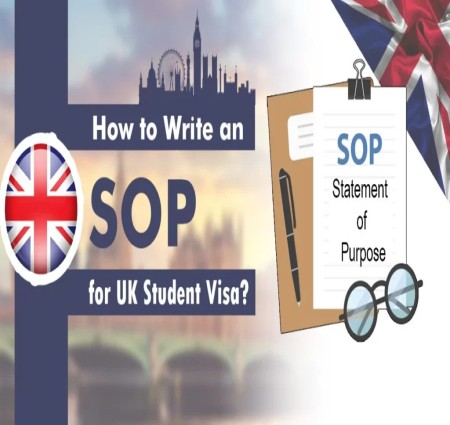Blog by transglobaloverseas | Digital Diary
" To Present local Business identity in front of global market"
" To Present local Business identity in front of global market"
 Digital Diary Submit Post
Digital Diary Submit Post
 Indian students seeking scholarships in the UK can access various opportunities with clear eligibility criteria. Scholarships like the Chevening and Commonwealth offer full funding. Application success depends on academic excellence and early planning. This guide covers the application process, eligibility, and tips to enhance your chances of securing a scholarship. Understanding UK Scholarship fo...
Read More
Indian students seeking scholarships in the UK can access various opportunities with clear eligibility criteria. Scholarships like the Chevening and Commonwealth offer full funding. Application success depends on academic excellence and early planning. This guide covers the application process, eligibility, and tips to enhance your chances of securing a scholarship. Understanding UK Scholarship fo...
Read More
Indian students seeking scholarships in the UK can access various opportunities with clear eligibility criteria. Scholarships like the Chevening and Commonwealth offer full funding. Application success depends on academic excellence and early planning. This guide covers the application process, eligibility, and tips to enhance your chances of securing a scholarship.
UK scholarships for Indian students are available across various universities and institutions. These scholarships help in reducing the financial burden and encourage talented students to pursue their academic goals in the UK.
Academic Excellence: Most scholarships require a strong academic record.
English Proficiency: IELTS or TOEFL scores are often necessary.
Specific Requirements: Some scholarships have specific criteria, like courses or universities.
| Scholarship | Eligibility Criteria | Funding Amount |
| Chevening Scholarship | Bachelor's degree, work experience | Full tuition, living expenses |
| Commonwealth Scholarship | Master's/PhD programs, financial need | Full tuition, airfare |
| GREAT Scholarships | Undergraduate or postgraduate, academic merit | Full tuition, airfare |
Academic Transcripts: Certified copies of your previous education.
Proof of Identity: Passport or national ID.
English Test Scores: IELTS/TOEFL results.
Letters of Recommendation: From academic or professional references.
Personal Statement: Explaining your academic goals and reasons for applying.
Research Scholarships: Identify suitable scholarships on university websites and scholarship databases.
Prepare Your Application: Gather all necessary documents and ensure they are up-to-date.
Submit Your Application: Follow the specific application procedures for each scholarship.
Attend Interviews: Some scholarships may require an interview process.
For more detailed information, read this article: UK Scholarships for Indian Students
Chevening Scholarships: Prestigious awards for postgraduate studies, funded by the UK government.
Commonwealth Scholarships: Scholarships and fellowships for postgraduate study and professional development.
Many UK universities offer scholarships specifically for Indian students. Research individual university websites for details.
Explore India-specific scholarships and subject-specific awards aligned with your field of study.
Apply Early: Start your application process well in advance.
Tailor Your Application: Customize your personal statement and documents to fit the scholarship requirements.
Seek Guidance: Consult with your school's academic advisor or study in Uk Consultants.
Incomplete Applications: Ensure all documents are submitted.
Missing Deadlines: Be aware of application deadlines and submit early.
Generic Statements: Personalize your application to reflect your unique qualifications and aspirations.
Applying for UK scholarships can be a rigorous process, but with careful preparation and a strong application, Indian students can successfully secure funding for their studies. Start early, stay organized, and use available resources to maximize your chances.
Read Full Blog... Studying in the UK is a dream for many international students but English language test can feel like a daunting hurdle. But fear not, aspiring scholars! Did you know that in 2023, a whopping 21% of UK universities accepted applicants without an IELTS score? That's right, there are alternative pathways to proving your English language proficiency and securing your spot at a prestigious UK univ...
Read More
Studying in the UK is a dream for many international students but English language test can feel like a daunting hurdle. But fear not, aspiring scholars! Did you know that in 2023, a whopping 21% of UK universities accepted applicants without an IELTS score? That's right, there are alternative pathways to proving your English language proficiency and securing your spot at a prestigious UK univ...
Read More
Studying in the UK is a dream for many international students but English language test can feel like a daunting hurdle. But fear not, aspiring scholars! Did you know that in 2023, a whopping 21% of UK universities accepted applicants without an IELTS score? That's right, there are alternative pathways to proving your English language proficiency and securing your spot at a prestigious UK university without IELTS for Indian Students.
Standardized Tests: Explore alternatives like Duolingo English Test, Pearson Test of English (PTE), or TOEFL iBT. These tests are often shorter and more flexible than the IELTS.
High School English Grades: If you excelled in English classes throughout high school, your transcript can serve as proof of proficiency. Universities typically set specific grade requirements, so check their websites for details.
Pre-sessional English Courses: Many universities offer pre-sessional English courses designed to bridge the gap and prepare you for academic coursework. Successfully completing such a course can demonstrate your English language skills.
Medium of Instruction: Was your previous education conducted entirely in English? Many universities consider this a strong indicator of your English proficiency.
Start by researching which UK universities accept alternatives to the IELTS. Each university has its own set of requirements, so it's essential to gather accurate information. Universities like the University of Portsmouth and the University of Bolton are known for accepting students without an IELTS score, provided they meet other English proficiency criteria.
Once you've identified the universities, prepare the necessary documents:
Academic Transcripts: Ensure all your academic records are up to date and certified.
English Proficiency Proof: Submit the accepted alternative English test scores or MOI certificate.
Personal Statement: Write a compelling personal statement that highlights your academic journey, achievements, and future goals.
Letters of Recommendation: Secure recommendation letters from your previous teachers or employers.
Apply directly through the university's website or use platforms like UCAS (Universities and Colleges Admissions Service) for undergraduate programs. Follow the specific guidelines for each university regarding the submission of documents and application fees.
Some universities may require an interview as part of the application process. This is an opportunity to showcase your communication skills and reinforce your proficiency in English.
After receiving an offer letter from the university, apply for a UK student visa. You'll need to provide evidence of your acceptance, financial stability, and English proficiency. Visit the official UK government website for detailed information on the student visa application process.
Applying to UK universities without an IELTS score is entirely possible with the right approach. By understanding the alternative options and following a systematic application process, you can achieve your dream of studying in the UK without IELTS. Remember to research thoroughly, prepare diligently, and seek guidance when needed. Good luck with your application!
Absolutely! A surprising 21% of UK universities actually accept applicants without an IELTS score. This guide explores alternative ways to demonstrate your English language proficiency.
Several options exist! Explore standardized tests like Duolingo English Test, Pearson Test of English (PTE), or TOEFL iBT. These can be shorter and more flexible than the IELTS.
Yes! Strong grades can be used as proof of English proficiency for many universities. Each university sets specific grade requirements, so check their admissions pages for details.
Many universities offer pre-sessional English courses designed to bridge the gap between your current level and academic coursework. Successfully completing one demonstrates your English proficiency.
Start by researching UK universities without IELTS with programs that align with your interests. Look for those that explicitly mention alternative English language requirements on their admissions pages. Contact the university directly to confirm details and gather required documents – transcripts, test scores (if applicable), and recommendation letters. Remember, application deadlines are crucial, so submit everything well in advance!
Read Full Blog... Securing a student visa for the UK requires careful attention to detail, especially when it comes to crafting your Statement of Purpose (SOP). Your SOP is a crucial component of your visa application, as it provides immigration authorities with insight into your academic background, career aspirations, and reasons for choosing the UK as your study destination. In this guide, we'll delve into w...
Read More
Securing a student visa for the UK requires careful attention to detail, especially when it comes to crafting your Statement of Purpose (SOP). Your SOP is a crucial component of your visa application, as it provides immigration authorities with insight into your academic background, career aspirations, and reasons for choosing the UK as your study destination. In this guide, we'll delve into w...
Read More
Securing a student visa for the UK requires careful attention to detail, especially when it comes to crafting your Statement of Purpose (SOP). Your SOP is a crucial component of your visa application, as it provides immigration authorities with insight into your academic background, career aspirations, and reasons for choosing the UK as your study destination. In this guide, we'll delve into what makes a strong SOP for a UK student visa and provide valuable writing tips and best practices to help you create a compelling document. Additionally, we'll explore how Transglobal Overseas can support you throughout your study in the UK journey.
Before diving into the writing process, it's important to understand the purpose of the SOP. This document serves as a means for you to articulate your academic background, career aspirations, reasons for choosing the UK as your study destination, and how your chosen course aligns with your future goals.
Begin by conducting thorough research on the course and university you intend to apply to. Familiarize yourself with the curriculum, faculty, facilities, and any unique features that attract you to the program. Tailoring your SOP to highlight specific aspects of the course and university demonstrates your genuine interest and preparedness.
Clarity and Conciseness: Aim for a clear and concise writing style. Avoid jargon and ensure your message is easily understood.
Structure and Flow: Organize your SOP logically, typically following a format that includes:
Introduction: Briefly introduce yourself, your educational background, and your chosen program in the UK.
Academic Background: Highlight your academic achievements, relevant coursework, skills, and experiences that demonstrate your preparedness for the program.
Program Justification: Explain why you've chosen this specific program and university in the UK. Mention specific aspects of the program, faculty expertise, or research opportunities that align with your goals.
Future Plans: Discuss your future career aspirations and how this program will equip you to achieve them. Explain how your UK education will contribute to your home country after your studies (optional).
Conclusion: Summarize your key points and reiterate your enthusiasm for studying in the UK.
Here are some expert tips and tricks to strengthen your SOP and enhance your chances of visa approval:
Research the University and Program: Demonstrate your knowledge of the university, its facilities, and the chosen program's curriculum.
Tailor Your SOP: Avoid a generic essay. Tailor each SOP to the specific program and university you're applying to.
Highlight Achievements: Don't be shy! Showcase your academic achievements, awards, relevant work experience, or extracurricular activities that add value to your application.
Quantify Your Achievements: Whenever possible, quantify your achievements using numbers or percentages to showcase their impact.
Be Honest and Authentic: Let your personality shine through. Write in a genuine voice that reflects your unique aspirations.
Transglobal Overseas is a leading study abroad consultancy that specializes in assisting students with their UK study aspirations. Here's how we can support you:
Expert Guidance: Our experienced consultants provide personalized guidance and support to help you navigate the complexities of the UK student visa application process.
Course and University Selection: We assist you in selecting the right course and university based on your academic background, career goals, and personal preferences.
Visa Assistance: Our team helps you prepare and submit your visa application, ensuring that all necessary documents are in order and that you meet the requirements set by UK immigration authorities.
Pre-departure Support: We offer pre-departure orientation sessions to prepare you for life in the UK, including information on accommodation, transportation, and cultural adaptation.
Ongoing Support: Even after you've arrived in the UK, we continue to provide support and assistance to ensure a smooth transition and successful academic experience.
Writing an SOP for a UK student visa is a critical step in the study abroad journey. By following the tips and best practices outlined in this guide and seeking support from Transglobal Overseas, you can enhance your chances of securing a student visa and embarking on an enriching academic adventure in the UK.
Clarity, conciseness, and a compelling structure are key. Highlight your academic achievements, program justification, future plans, and enthusiasm for studying in the UK. Proofread meticulously!
Research the university and program thoroughly. Tailor your message, showcase achievements with specifics, and write in an authentic voice. Reviewing well-written SOP samples can inspire you, but avoid plagiarism.
Go beyond mentioning faculty expertise. Demonstrate research skills and transferable skills gained from extracurriculars. Anticipate potential visa officer concerns and address them proactively. Weave a cohesive narrative throughout your SOP.
Start with an intriguing hook to grab attention. Briefly introduce yourself and your academic background. Conclude by summarizing key points, expressing enthusiasm, and including a forward-looking call to action.
Read Full Blog...I want to Hire a Professional..